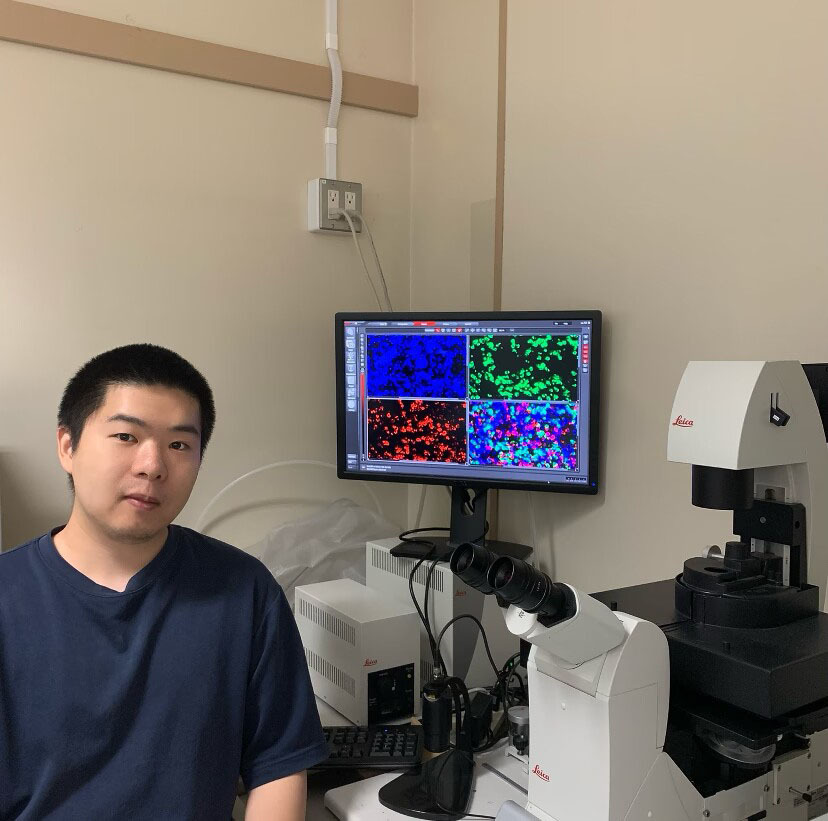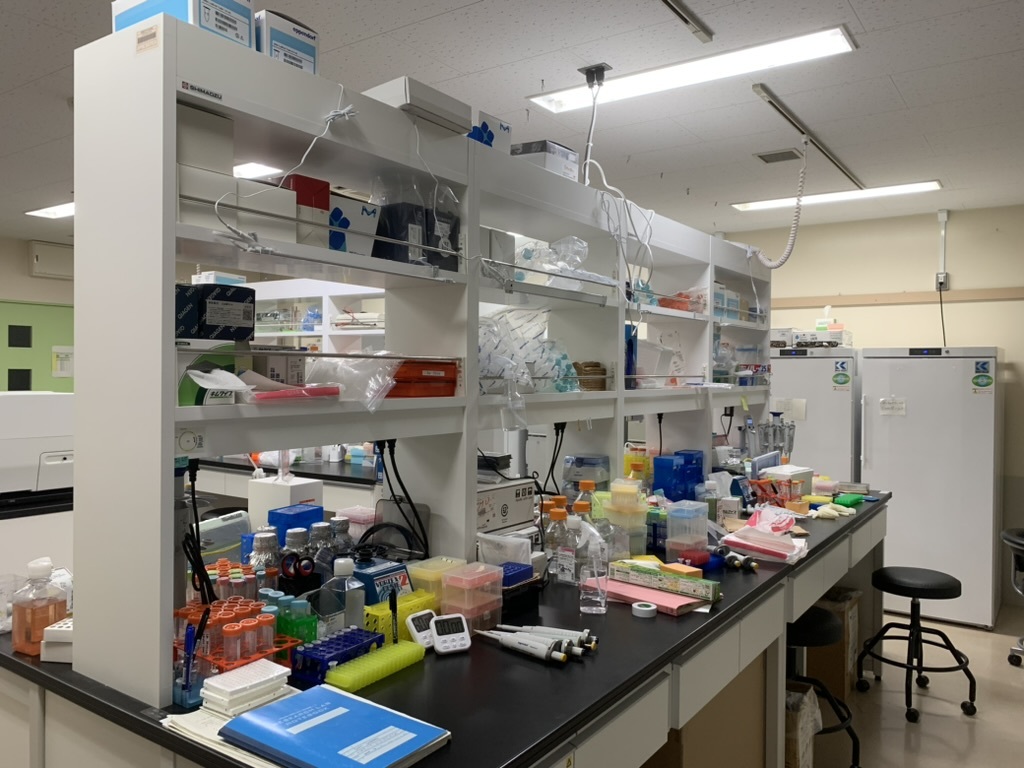一般・学生向け
低温研で活躍する学生

シャオ チェングルー
冬眠代謝生理発達分野/環境科学院 生物圏科学専攻 D2
photo: In front of a fluorescence microscope.
How did you come to know about ILTS?
The ILTS used to be mysterious to me. I knew it was located at the northern campus of Hokkaido University, but I could not figure out what kinds of research were being conducted there. This may be because Low Temperature Science is a more abstract concept than names such as Environmental Science which includes objects of study, but I really got to know ILTS when I became a PhD student of current laboratory that belongs to the Graduate School of Environmental Sciences and locates in ILTS. Now I realized that ILTS consists of independent laboratories doing low temperature-related research in very various directions, such as hibernation of animals, cold-adaptation of plants, and dynamics of ocean ice.
What kind of research are you currently doing at ILTS?
I study mammalian hibernation, which is an adaptive strategy that allows animals to survive harsh winter environments.
For the success of hibernation, it is believed that the hibernator's body must be adapted for the winter season before hibernation initiation. Using the Syrian hamster as a model animal, I am currently researching hibernation-associated seasonal remodeling in its pituitary glands, a brain region specialized to secreting hormones. I have found that hibernation is accompanied by seasonal fluctuations in specific pituitary hormones, which may be involved in the induction and maintenance of hibernation. By taking various molecular biology approaches, I am attempting to elucidate the molecular mechanisms of such seasonal fluctuations in hormones, their contributions to body remodeling, and their potential roles in regulating hibernation.
What is the reason why you decided to enter graduate school?
I am always interested in research. Since childhood, I have been attracted by biological phenomena and fascinated by the underlying principles. As I grew up, learning about groundbreaking scientific discoveries fueled my admiration for the creativity of scientists, inspiring me to pursue a science career. Currently, I am focusing on hibernation research, which offers me the potential to get new insights and contribute new knowledge to the world. On the other hand, honestly, I am someone who fears living a routine life. The thought of taking an ordinary job and repeating similar days fills me with boredom. Entering graduate school allowed me to constantly encounter new things and filled my life with a sense of freshness, which made me happy.
How did you choose your current laboratory?
I chose the current laboratory mainly because of the following two reasons.
First, I think hibernation is a research field with great significance. Different from non-hibernating animals such as humans, hibernators keep body temperature extremely low without dying, keep slow heartbeats without failing, and stop movement without severe muscle atrophy. Revealing the mechanisms behind these phenomena holds great potential to be applied in translational medicine to benefit humanity. For example, organ preservation and transplantation at low temperatures, Cardiovascular system treatment, inhibition of muscle atrophy, and so on.
Second, this laboratory has a good research environment. Two years ago, when I expressed my interest in hibernation research to Prof. Yamaguchi, he kindly showed me around the whole laboratory and patiently explained the current research directions and progress of this laboratory. During the visit, I noticed this big laboratory was well-equipped and tidy. The animal rooms were also clean, and the animals looked well cared for. Most importantly, the students were smiling and looked enjoying their research. All in all, I was impressed by the harmonious atmosphere, and finally decided to join this laboratory.
How do you spend your holidays?
I spend most of my holidays relaxing at home, this is partly because I am a person who prefers quiet and solitude rather than going out, and partly because transportation and accommodation costs for traveling in Japan are quite expensive for a student. On a typical vacation, I will be at home fulfilling my hobbies, such as playing games, watching videos, cooking, DIY, etc. Sometimes, I also go to the laboratory to catch up with my experiments. Occasionally (about three times a year) I would travel with my friends during the non-snowy seasons, we drive out far away from Sapporo city to see the scenery of Hokkaido or take a plane to other regions in Japan. Of course, the holiday schedule varies from person to person, and some of my friends enjoy traveling almost every holiday.
How is life in Sapporo?
Overall, I feel comfortable living in Sapporo. As the largest city in Hokkaido, it offers a convenient lifestyle, affordable costs, friendly people, and stunning scenery. One of the things I especially appreciate is the climate. Coming from southeastern China, where summers are scorching hot and winters are cold and damp, the weather here is a welcome change. In summer, the temperature here rarely exceeds 30°C, so it never feels too hot even outdoors. Although it snows a lot in winter, the cold is more bearable likely due to the dry air. If you like traveling and outdoor activities, I believe Sapporo is a wonderful place to live. You can explore Hokkaido's excellent nature in the non-snowy seasons and enjoy world-class skiing on its famous powder snow in winter.
What advice would you give to younger students who want to enter graduate school?
To be honest, as a student who has not yet obtained a PhD degree, I do not feel particularly qualified to give advice to younger students. However, here are some shallow insights I have gained as a student so far.
First, graduate school is designed to develop academic research skills; it is not intended for those who only want to take more courses or quickly find a job. Second, interest is the best teacher. If you have not confirmed your strong interest and motivation in a certain research field, do not enter graduate school, as you may not truly enjoy the research process with difficulties and failures. Additionally, choosing a good laboratory is the most, most, most important for your future physical and mental well-being. Before deciding to join a laboratory, make sure to visit in person, interact with the advisors and students, and observe their daily lives and mental states. Trust your instincts to sense whether the lab has a healthy research atmosphere, because the way the other students are now will likely be how you will be in the future.

photo: My experiment bench.
(2024.12)

